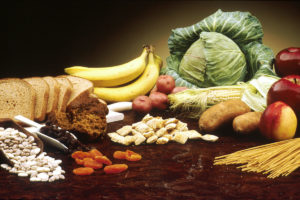 Vegan diets may be popular, but there is concern whether someone following a vegan diet can get all necessary nutrients from the diet and whether this impacts health in a negative way. This is because a person following a vegan diet avoids all animal foods - which means no dairy, no meat, no eggs, no honey, no fish, no shellfish, and no insects. This can mean difficulties in getting enough protein and some nutrients, for example choline (necessary for the brain), vitamin B-12, and calcium.
Vegan diets may be popular, but there is concern whether someone following a vegan diet can get all necessary nutrients from the diet and whether this impacts health in a negative way. This is because a person following a vegan diet avoids all animal foods - which means no dairy, no meat, no eggs, no honey, no fish, no shellfish, and no insects. This can mean difficulties in getting enough protein and some nutrients, for example choline (necessary for the brain), vitamin B-12, and calcium.
A recent study by University of Oxford researchers examined this issue by following about 55,000 people for 18 years: meat eaters, vegans, vegetarians (avoid meat, but eat dairy and /or eggs), and pescatarians (a vegetarian diet, but also eats fish). They found that when compared to meat eaters, vegans had a higher risk of fractures in their bodies (number of total fractures), and especially hip, leg, and vertebral fractures. Vegetarians and pescatarians also had a higher risk of hip fractures when compared to meat eaters, but a lower risk than vegans.
Other studies have shown that vegetarians have lower bone mineral density (BMD) than non-vegetarians, and that both calcium and protein intakes are linked to bone health. In this study and other studies, vegans had substantially lower intakes of calcium than the other dietary groups (since they do not consume dairy), and both vegetarians and vegans had lower protein intakes than meat and fish-eating groups.
Bottom line: Research finds diets rich in whole grains, legumes, fruits, vegetables, seeds, nuts, some fish, meat, eggs, and dairy (similar to the Mediterranean diet) as healthy and providing all nutrients. Pregnancy and childhood are times when one should be especially careful about getting all needed nutrients.
From Science Daily - Vegans, vegetarians and pescetarians may be at higher risk of bone fractures
Compared with people who ate meat, vegans with lower calcium and protein intakes on average, had a 43% higher risk of fractures anywhere in the body (total fractures), as well as higher risks of site-specific fractures of the hips, legs and vertebrae, according to a study published in the open access journal BMC Medicine.
Vegetarians and people who ate fish but not meat had a higher risk of hip fractures, compared to people who ate meat. However, the risk of fractures was partly reduced once body mass index (BMI), dietary calcium and dietary protein intake were taken into account.
Dr Tammy Tong, Nutritional Epidemiologist at the Nuffield Department of Population Health, University of Oxford, and the lead author said: "This is the first comprehensive study on the risks of both total and site-specific fractures in people of different diet groups. We found that vegans had a higher risk of total fractures which resulted in close to 20 more cases per 1000 people over a 10-year period compared to people who ate meat. The biggest differences were for hip fractures, where the risk in vegans was 2.3 times higher than in people who ate meat, equivalent to 15 more cases per 1000 people over 10 years."
A team of researchers at the Universities of Oxford and Bristol, UK analysed data from nearly 55,000 people in the EPIC-Oxford study, a prospective cohort of men and women living in the UK, who were recruited between 1993 and 2001, many of whom do not eat meat. Prospective cohort studies identify a group of people and follow them over a period of time to understand how certain factors (in this case diet) may affect certain outcomes (in this case fracture risk).
In addition to a higher risk of hip fractures in vegans, vegetarians and pescetarians than the meat eaters, vegans also had a higher risk of leg fractures and other main site fractures.
